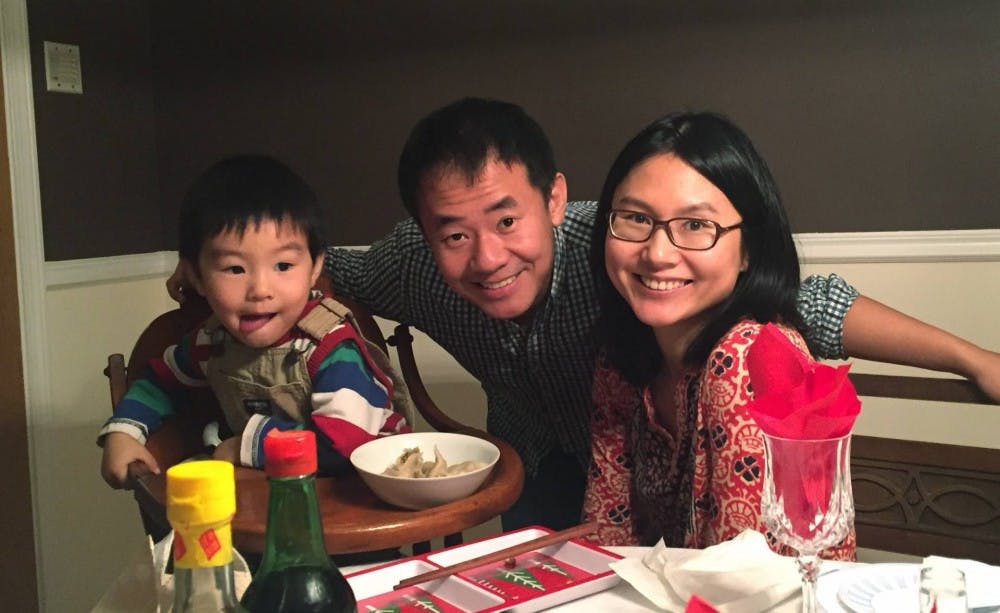Rising tensions between the United States and Iran underscore the uncertain fate of Xiyue Wang GS, who has been detained in Iran since 2016 on charges of espionage. Wang was in the country learning Persian and researching 19th and early 20th century Eurasian history, and a United Nations committee concluded in 2018 that “there is no evidence that Mr. Wang was present in Iran for any reason other than to pursue his dissertation research.”
Tensions between the United States and Iran, already high after President Donald Trump pulled out of the Iran nuclear deal in 2018, have escalated in recent weeks. On June 13, two oil tankers were attacked in the Gulf of Oman. Although the United Nations report on the incident stopped just short of pointing fingers, the United States was quick to blame Iran.
The next week, after Iran shot down an unmanned U.S. drone, Trump approved a military strike to retaliate, which he called off last minute. Earlier this week, Iran announced that it had surpassed the limit of enriched uranium set by the Iran deal, alarming global powers. Responding via Twitter, Trump told Iran to “Be careful with the threats,” adding, “They can come back to bite you like nobody has been bitten before!”
In the midst of this diplomatic turmoil is Wang, his wife Hua Qu, and his six-year-old son, who has now lived half his life without his father. Qu did not respond to request for comment but said in a past statement that she and her son “constantly worry about Xiyue’s health and well-being as he remains behind bars in a foreign country away from his family and loved ones.”
According to reporting from The New Yorker, Qu “has been assured by [Trump] Administration officials that they are working for her husband’s release, but she has been left largely in the dark about what is happening.”
The recent escalation in tensions between Iran and the United States worries Michael “Mikey” McGovern GS, President of the Free Xiyue Wang Working Group, who fears that the changing political situation could prolong Wang’s detainment. He hopes, however, that increased media attention on Iran will help raise the profile of Wang’s case and expedite his release.
“We want no part in the escalation of conflict,” McGovern said. “All we want is to ensure Wang will be brought home safely.”
Wang is one of at least four Americans being detained in Iran. Nizar Zakka, who was arrested without warning in September 2015 and accused of being an American spy, was released last month. In an interview with the New York Times, Zakka said he shared a cell with Wang, whose condition he described as “mentally sharp and strong, but physically ‘tired.’”
“I told him that I will not leave him behind. I promised him that I will not rest until he’s freed,” Zakka said to the Times. “He’s a student, he was doing his research. Nothing justifies him being left behind.”
Following Zakka’s release, the University renewed its “urgent call” for Wang’s release in a statement issued on June 13. The University cited findings from the United Nations Working Group on Arbitrary Detention, which concluded that Wang had been arrested and detained without any legal basis and should be released immediately.
“We yearn for the day he returns home, resuming his scholarly work and recovering from this unwarranted and agonizing ordeal in the loving embrace of his family and friends,” concluded the University statement.
Professor in Middle East Policy Studies and former U.S. Ambassador to Egypt and Israel Daniel Kurtzer described the difficult process that would be needed to secure Wang’s release.

“If there is any possibility of securing the release of American citizens imprisoned in Iran, it would have to be part of a complex deal, negotiated out of the limelight,” he explained. “Recent tensions make this prospect remote.”
Kurtzer expressed skepticism over the availability of opportunities to negotiate.
“While there are some diplomatic contacts between the United States and Iran via third parties, for example Oman and perhaps others, there does not appear to exist a serious backchannel through which the two countries could communicate directly,” he wrote in an email to the ‘Prince.’
“No one knows what will work or not work, and thus strategy and tactics need to be considered carefully, including in consultation with Wang’s family,” Kurtzer added.
Professor in History and International Affairs Stephen Kotkin, Wang’s academic advisor, explained that many on campus feel Wang’s absence.
“Wang should be released immediately, regardless of any ups or downs in U.S.-Iran relations,” Kotkin wrote in an email to the ‘Prince.’ “We miss him terribly.”








